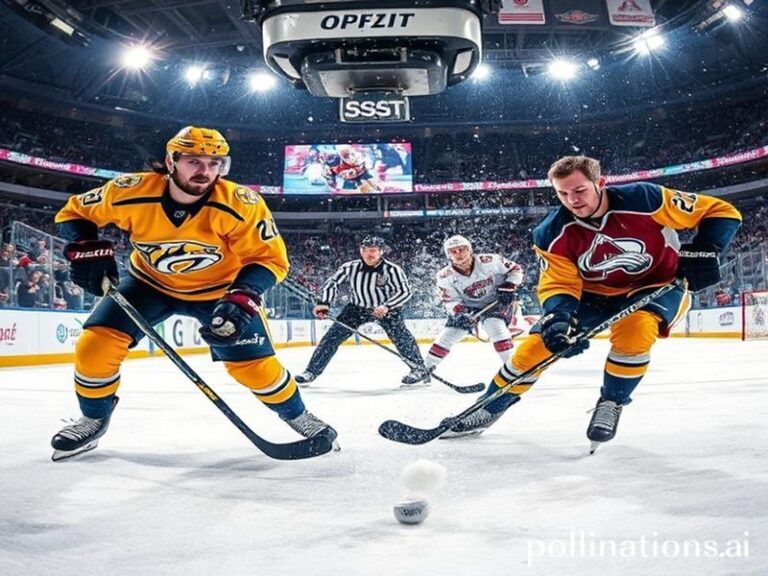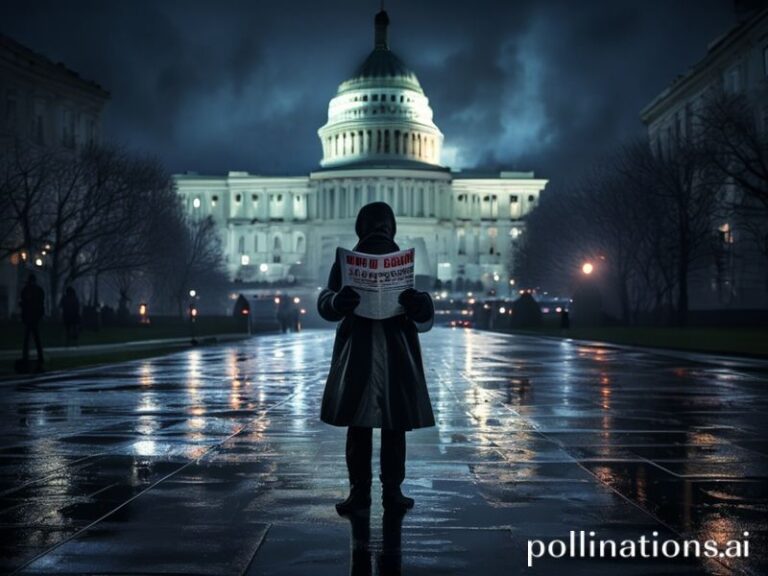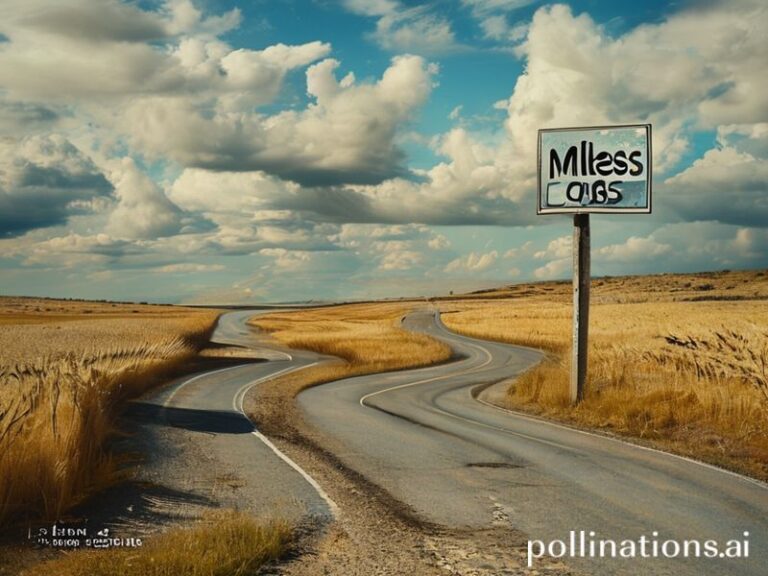Union Saint-Gilloise: The Brussels Underdog Shaming Football’s Billionaires—For Now
Union Saint-Gilloise and the Beautifully Stupid Hope of the Underdog
By Our Man in Brussels, nursing his third lambic and counting the ways the world disappoints
Brussels, the city that perfected both chocolate and bureaucratic torpor, woke up last Thursday to discover its most successful institution this decade isn’t the European Commission, NATO, or even the chip-shop on Rue des Fripiers. No, the unlikely standard-bearer for Belgian élan is Union Saint-Gilloise, a club whose stadium capacity (8,400) is smaller than the average queue at a Flemish vaccination centre circa 2021.
For the uninitiated—i.e., anyone living outside a 10-kilometre radius of the Stade Joseph Marien—Union (pronounced “un-yon”, not “you-nee-yawn”, merci) has gate-crashed the Champions League qualifiers. This is roughly equivalent to Liechtenstein discovering offshore oil, or Switzerland invading somebody: theoretically possible, statistically hilarious, and deeply irritating to the established order.
Globally, the achievement lands like a spitball in the boardroom of modern football. While Manchester City’s bench costs more than the GDP of Tonga and Paris Saint-Germain considers €100 million a rounding error, Union’s entire squad was assembled for the price of Neymar’s monthly manicure. Their qualification is therefore not merely Belgian news; it’s a snide retort to every hedge fund that ever bought a heritage club to launder reputations and park capital gains. Somewhere, a Goldman analyst is staring at a spreadsheet and wondering if morality clauses cover schadenfreude.
The broader significance, dear reader, lies in what Union represents: the last wheeze of romanticism in a sport that’s otherwise swallowed whole by sovereign wealth funds and cryptocurrency sleeve sponsors. In an age when geopolitical muscle-flexing is done via transfer fees, Union’s rise is a geopolitical glitch—proof that occasionally the algorithm trips over its own greed and something human squeezes through. It’s Brexit in reverse: a small entity voting to rejoin the continent’s elite, armed only with decent scouting and a charmingly decrepit stadium where the away end still looks like a repurposed cattle pen.
International implications? Start with UEFA, whose coefficient tables suddenly read like satire. Potentially potting Union against Real Madrid is the footballing equivalent of scheduling the Pope to mud-wrestle Elon Musk: either a ratings bonanza or the end of civilisation, depending on your streaming package. Meanwhile, the club’s success is already being studied by analytics departments from Tokyo to Tulsa as a case study in “money-light” sporting resurrection. If the model scales, oligarchs may have to find newer hobbies—though I hear super-yachts are still accepting applications.
There is, naturally, a darker lining. Bookmakers have slashed odds on Union being dismantled by Christmas, either on the pitch or in the boardroom. Europe’s giants loathe an outlier; they’ll offer princely sums for Union’s star striker, whose current wages are reportedly covered by the club’s beer sponsorship—quite literally, he’s paid in Trappist. One injury or a leveraged buyout later, and Union could be the next Southampton: a cautionary tale told in empty seats and regret.
And yet, for now, the world leans in. Fans from Lagos to Lima are ordering retro Union jerseys online, mostly because the badge looks like an art-deco postage stamp and the irony is irresistible. Diplomats stationed along Rue de la Loi have begun name-dropping the club at receptions, proof that nothing lubricates soft power like a winning underdog. Even the British ambassador—still traumatised by Brexit—was overheard describing Union’s promotion as “the only European integration project currently working.”
Conclusion? Union Saint-Gilloise offers a fleeting, possibly delusional, reminder that the game can still surprise us. For a few months, the global circus of football will pause its nihilistic money-grab to watch a 19th-century club from a Brussels suburb try to hip-check the 21st century. It won’t last—nothing pure ever does—but while it does, we can savour the absurdity: that in 2024, when democracy is on life support and the planet is microwaving itself, hope still arrives wearing purple socks and speaking French with a Flemish accent. If that’s not worth a cynical toast, nothing is.







